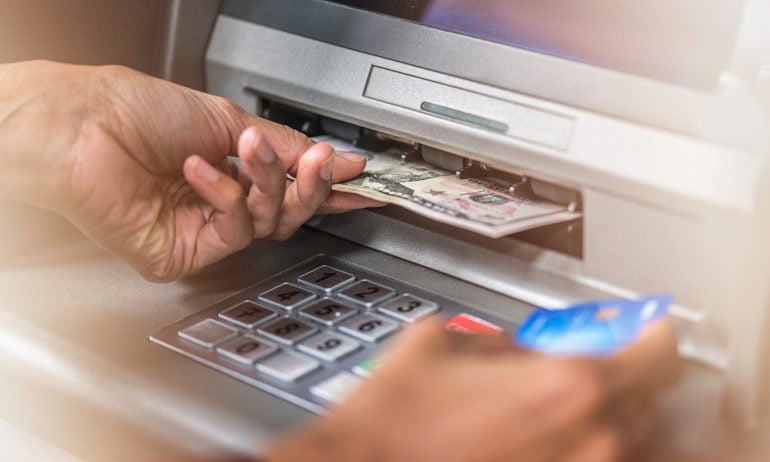Are Cash Advances a Good Idea?
Rarely. They offer convenient access to fast cash, but high fees and interest will cost you dearly. Less expensive alternatives exist.

Many or all of the products on this page are from partners who compensate us when you click to or take an action on their website, but this does not influence our evaluations or ratings. Our opinions are our own.
Every once in a while, you may find yourself needing cash but holding nothing but credit cards. Maybe you’re at a cash-only food truck, or your cab driver won't take plastic. In such circumstances, it can be tempting to go for a credit card cash advance — a short-term cash loan on your credit card. It’s a simple transaction, but one that can have very expensive consequences. More often than not, it’s a terrible idea.
The problem with cash advances
Getting a credit card cash advance is straightforward: Take your credit card to a bank teller or ATM and walk away with cash, which you pay back later. It sounds benign, but cash advances can mean:
Paying a cash advance fee: As the name implies, this is a one-time fee charged when you take your advance, often 3% to 5% of the amount you receive. For example, if you take out a $200 cash advance, an additional $6 to $10 will be charged to your card on top of the $200.
A higher interest rate: Many cards charge a higher APR for cash advances than for regular purchases.
No grace period: Credit cards typically allow for a grace period that lets you avoid paying interest on purchases if you pay your bill in full each month. Cash advances, though, start to accrue interest from day one.
What are some alternatives to a cash advance?
There are plenty of other ways to get fast cash. Here are some examples that may be more relevant to you:
Promotional offers from your card's issuer: Some credit card issuers offer cheaper ways to tap your credit line, including the option to turn your available credit into an installment loan without requiring a new loan application. You're still charged interest when you use this option, but you'll possibly get a more reasonable rate. See the video below for more information.
An overdraft on your checking account: It may cost $25 to $35 if your account balance goes negative but you’ve authorized the bank to allow the withdrawal anyway. You can opt out of this, of course, but it is a last-resort option for short-term funds. Some banks don't charge overdraft fees, making this a more viable option for a short-term emergency. Be careful, though — some banks charge extended overdraft fees.
An early withdrawal from a certificate of deposit (CD): This is another option if you need money right away. However, CDs are meant for long-term deposits, so you might face early withdrawal penalties or have your CD canceled.
A personal loan: This alternative is typically more involved than the other options, as it involves you going to a bank and applying for the loan. Interest rates on 24-month personal loans are lower than that on most credit cards, but the rates on short-term loans from payday lenders are often much higher.

When does a cash advance make sense?
Cash advances rarely make sense.
That said, if you run the numbers compared with the alternatives, you might find that a cash advance on your credit card is the least expensive option. It’s probably not going to be free, though. If you must take out a cash advance, it only makes financial sense if you know you’ll have the money to pay it off as fast as you can. Otherwise, the interest piles up with every passing day.
The balance might tip in favor of a cash advance if you’re using a card with no cash advance fee. In that case, you need only worry about interest.
Even better: Avoid needing an advance
Build up an emergency fund to cover unexpected expenses. Consider setting up automatic deductions to transfer money from your primary checking account to a “rainy day” account, or look at a few ways to earn extra money on the side.
If you find yourself considering cash advances solely because you’ve forgotten to carry cash, though, get yourself a debit card that has no ATM fees or that reimburses the occasional ATM fee. That way, you’ll be able to use the nearest ATM without getting slapped with an out-of-network surcharge.
Find the right credit card for you.
Whether you want to pay less interest or earn more rewards, the right card's out there. Just answer a few questions and we'll narrow the search for you.

